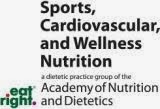Iron status is usually the last thing athletes think of when
exercise performance is the topic. However, an iron deficiency can actually
impair performance. In short, iron gives hemoglobin (a protein in red blood
cells) and myoglobin (a protein in heart and skeletal muscles) the ability to
carry oxygen. When an iron deficiency is present, oxygen delivery to tissues
such as the muscles becomes limited. This can result in shortness of breath and
fatigue – especially with exercise. Therefore, iron status plays a large role
in exercise performance.
Iron-deficiency anemia is not as frequent in athletes as
suboptimal serum ferritin levels – the amount of iron stored in the body. All
athletes can be prone to suboptimal serum ferritin levels, but women of
reproductive age are at a larger risk due to menstrual blood losses and diets
deficient in iron.
Iron can be obtained in the diet from heme or nonheme
sources. Heme iron is present in meat such as beef, pork, and seafood. Whereas,
nonheme is present in select plant foods like spinach and kidney beans. Unlike
the readily absorbed heme iron, nonheme iron absorption is hindered by several
dietary factors. For example, the oxalic acid found in spinach or the
polyphenols in tea or coffee bind nonheme iron and reduce its absorption.
However, when iron losses – from menstrual blood losses, or
gastrointestinal bleeding – exceed iron intake from food, tissues and iron
stores become deficient.
This brings us to the question, does iron supplementation
benefit physical performance in women of reproductive age?
Pasricha et al. performed a systematic review and
meta-analysis – which was recently published in Journal of Nutrition – to address this question.
While, I’d love to tell you details about the meta-analysis
– let’s cut it short and jump to the findings.
Women who were given an iron supplement showed improvements
in maximal oxygen consumption. Additionally, daily iron supplementation enabled
women to perform an exercise using a lower heart rate with greater efficiency. The
improvements in maximal and submaximal exercise performance from daily oral
iron supplementation were clearest in iron-deficient and trained women.
According the Pasricha et al., this is the first published
meta-analysis providing evidence of beneficial effects of iron supplementation
on physical performance.
Athletes should always remember to consult with a registered
dietitian prior to taking any dietary supplement to assess any risks.
Gavin Van De Walle is an ISSA
Certified Fitness Trainer, a NANBF Natural Competitive bodybuilder, a nutrition
columnist for “The Collegian,” and a dietetic student at South Dakota State
University. Once Gavin becomes an RD, he will aim to achieve the distinguished
Certified Specialist in Sports Dietetics (CSSD) credential.
1.
S.-R. Pasricha, M. Low, J.
Thompson, A. Farrell, L.-M. De-Regil. Iron Supplementation Benefits
Physical Performance in Women of Reproductive Age: A Systematic Review and
Meta-Analysis. Journal of Nutrition, 2014; DOI:10.3945/jn.113.189589


.jpg)